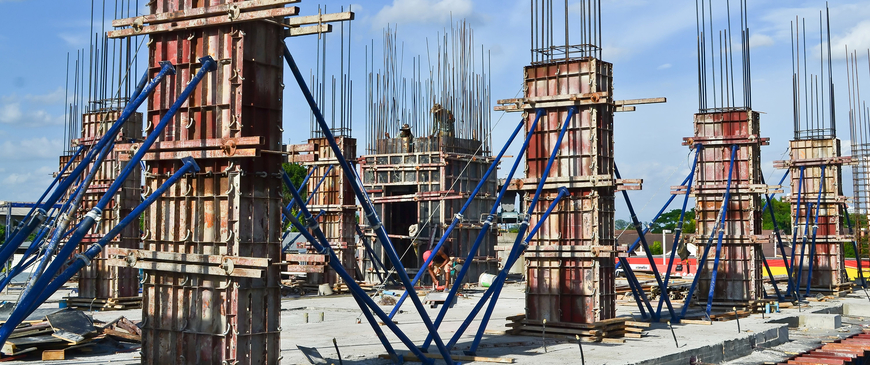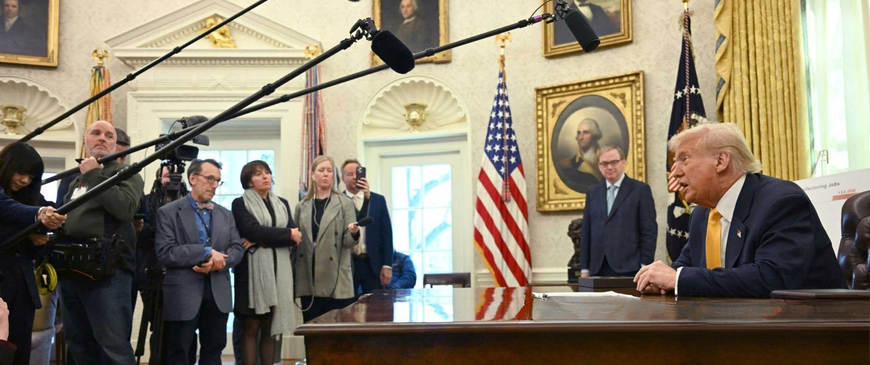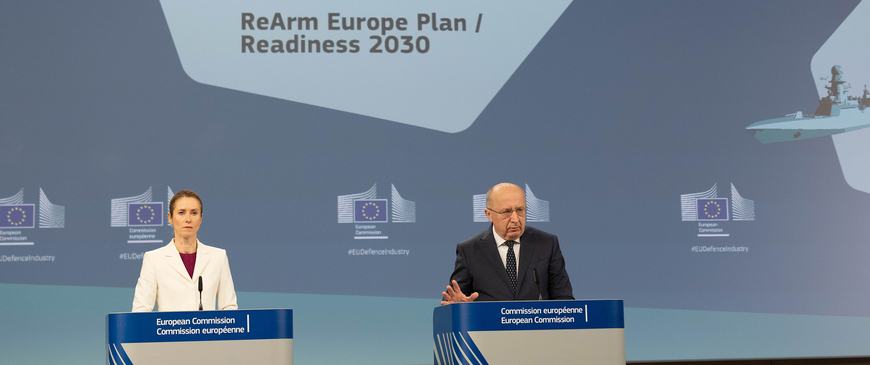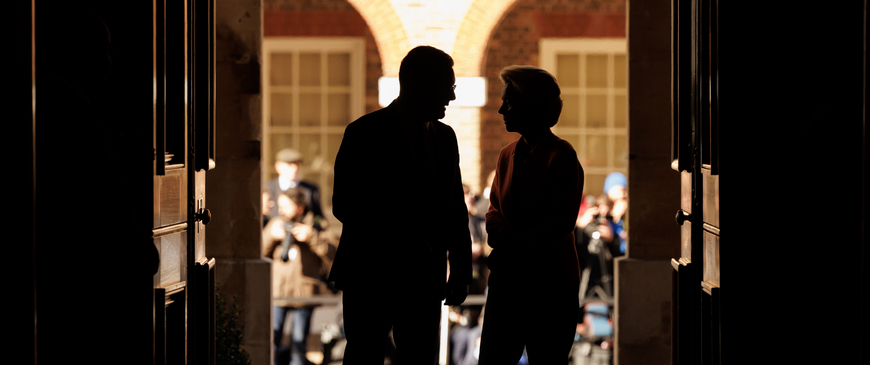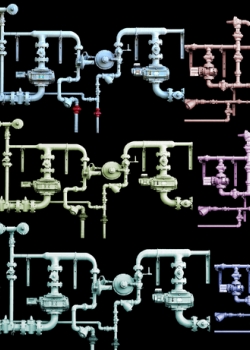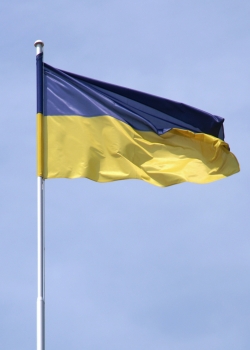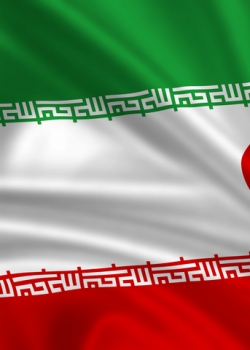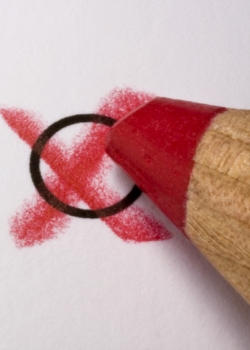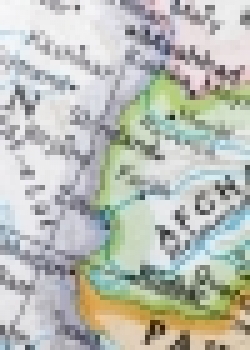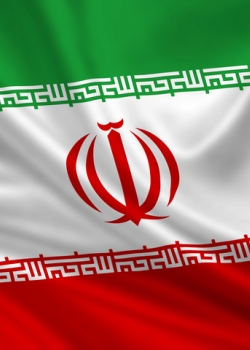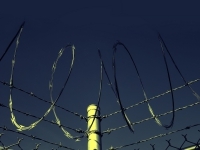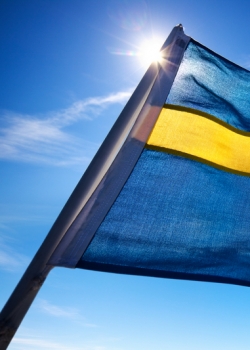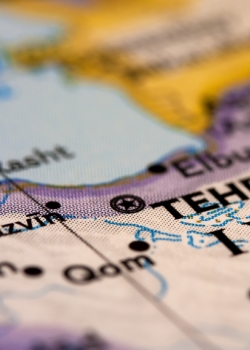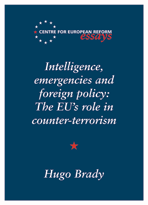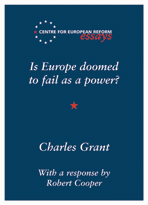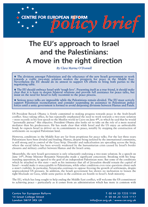Foreign policy & defence
Pipeline politics: Why Nabucco is stuck
29 January 2010
Last year, plans for the Nabucco pipeline – almost a decade in the making – appeared finally to make some headway. In March, the EU earmarked €200 million for preparatory work.
Can Turkey combine EU accession and regional leadership?
25 January 2010
The looming deadlock in Turkey's EU accession bid stands in contrast with its increasingly active role in the Middle East, the Caucasus and Central Asia. Some observers worry that Ankara is turning away from the West and is instead pursuing a 'neo-Ottoman' or 'Islamist' foreign policy.
Ukraine and the EU: A vicious circle?
01 December 2009
There is no rule for how a government desiring to join the EU should make its case. But countries that managed to accede in recent years had done so by observing a few simple guidelines: cultivate friends among EU governments, be prepared to make painful sacrifices and, above all, show...
Issue 69 - 2009
27 November 2009
- An open letter to David Cameron, Charles Grant
- Sharing the burden of a weaker dollar, Simon Tilford
- Ukraine and the EU: A vicious circle?, Tomas Valasek
Last hooray for the EU on Iran?
25 November 2009
When the EU's first 'foreign minister', Cathy Ashton, starts work on December 1st, she will find Iran on top of her 'to do' pile. Earlier this week, Tehran turned down a proposal from the International Atomic Energy Agency (IAEA) that would have seen a large part of the country's stock of uranium moved out of the country for further enrichment.
What Eastern Europe can learn from the crisis
11 November 2009
It is 20 years since the Berlin Wall crumbled and political and economic freedom started spreading through Eastern Europe. Today, however, the region is mired in deep recession.
NATO, Russia and European security
06 November 2009
Countries in Europe's east and north worry that Moscow is blundering into a confrontation with NATO. They have begun demanding that the alliance start preparing for a possible conflict. But are they right to be concerned?
Is Turkey Iran's friend?
04 November 2009
Is Turkey really Iran’s “friend”, as Recep Tayyip Erdogan claimed in a recent interview with the Guardian newspaper? Erdogan’s visit last week to Tehran suggests so.
Britain must pool defence capabilities
01 October 2009
Britain’s current approach to defence is unsustainable. Ambitious operations in Afghanistan and Iraq, coupled with expensive weapons programmes, have fed a defence budget deficit that is forecast to be £2 billion a year by 2011-2012.
Issue 68 - 2009
25 September 2009
- Europe leaves behind the era of treaty change, Charles Grant
- Europe's imbalanced response to the financial crisis, Philip Whyte
- Britain must pool defence capabilities, Clara Marina O'Donnell
The dangers of Karzai’s re-election
10 September 2009
The final result of the Afghan election may not be known until the end of September, but it looks as if President Hamid Karzai will have done well enough to avoid a second round of voting.
Iran's nuclear problem: Ever harder to fix
03 August 2009
Iran’s theocratic regime remains in power, despite persistent divisions within the ruling elite. Whatever the long-term fate of Supreme Leader Ali Khamenei and President Mahmoud Ahmadinejad, the unrest that followed June’s presidential election probably makes it harder for the West to persuade Iran to set aside its nuclear ambitions.
Barack Obama...
Barack Obama...
Issue 67 - 2009
31 July 2009
- Iran's nuclear problem: Ever harder to fix, Tomas Valasek
- Britain and the EU: The cost of leaving, Simon Tilford
- Scotland's bid to join the EU, Hugo Brady
Can Europeans share a common security culture?
27 July 2009
European countries have long declared their ambition to turn the EU into a global player in security – in order to tackle common threats and strengthen their voice on the global stage.
Carl Bildt and the cost of speaking plainly
21 July 2009
Carl Bildt is better known throughout the world than most of his fellow EU foreign ministers – and many of the prime ministers, too.
Iran, elections, and nuclear weapons
10 July 2009
What the future holds for Iran's theocratic regime is hard to read. True, the government has ensured its own survival by suppressing last month's protests there with brutal force.
Intelligence, emergencies and foreign policy: The EU's role in counter-terrorism
01 July 2009
Many European countries feel threatened by terrorist plots against civilians and infrastructure. European governments have strengthened their efforts to co-operate on counter-terrorism over the past decade.
Is Europe doomed to fail as a power?
01 July 2009
How relevant is Europe in the emerging multipolar world? On current trends, the EU seems unlikely to be one of the powers that shapes the new order. Divisions among the member-states and a lack of military muscle have weakened the EU's foreign and defence policy.
The EU's approach to Israel and the Palestinians: A move in the right direction
18 June 2009
Divisions amongst Palestinians and the reluctance of the new Israeli government to work towards a viable two-state solution weaken the prospects for peace in the Middle East.
What the economic crisis will mean for European defence
05 June 2009
There are mounting indications that defence budgets across Europe, not very high in the first place, could fall further because of the economic crisis.

